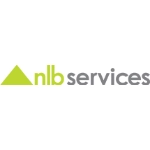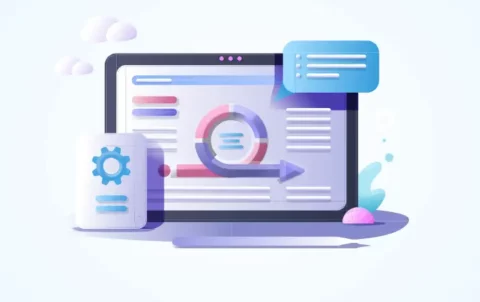© 2025 Next Level Business Services Inc. All Rights Reserved.
The Best Ways to Encourage Employee Career Growth
By NLB Services
Any individual’s progression toward their ultimate professional goals is called employee career growth. Career growth outlines their long-term trajectory to advance their designation or title in their career.
Any company’s growth starts with empowering employees so that they can accomplish their professional career goals. Although every employee has some plan for their career, they may not know how to achieve it. It’s up to their managers to support employees’ career growth so they can build their skills, be motivated on the job, and perform well. As an employer or manager, it is imperative that you ask your employees “What are your career aspirations” so that they can see where to get the right opportunities.
In our blog, let’s understand the career growth meaning and what it actually means for employees and employers.
- Establishing a Culture of Learning and Development
- Providing opportunities for continuous learning and development in the career development plan
A learning culture in the company enables employees to grow in their current roles and achieve their career goals. Organizations can support employees’ career growth and development when they know their work is encouraged, prioritized, and celebrated. When companies incorporate learning and growth into their core values, people working in the company shine through in their careers and make the business grow.
Imbibing a learning culture in the company is one of the motivational effects of providing clarity around career paths for the employees and setting career aspirations examples for other companies. It helps to stimulate optimism and a sense of learning which ultimately leads them to work in a way that the company belongingness is created among them. The belongingness is then derived from the perceived organizational support and expressed through an investment that the company is willing to make. These kinds of learning initiatives not only help businesses innovate and grow but also play an important role in retaining key talent for a longer duration.
According to research, 67% of employees believe their managers are committed to their teammate’s continuous learning and overall development. While many understand training’s importance, one-third of managers have to do some work if they want their teams to work toward the organization’s future success.
Implementing regular performance evaluations
Offering Opportunities for Skill Expansion
Performance evaluation and management is an ongoing process and not a once-in-a-year event. Managers and team leads should discuss their teammates’ progress toward the company’s goals during regular one-on-ones with them. Give them performance reviews and suggest ways for performance improvement. Then they should outline the next steps for career development and growth so that each team member knows exactly what they need to do and how they need to do the job to continue their career path.
Team leads should revisit each employee’s career goals regularly to ensure they are still aligned and offer a realistic avenue for advancement. After evaluation and one-on-one discussions, companies may need to adjust employee development plans to address changing times and priorities, give continuous feedback, and solve challenges coming in their roles.
Encouraging employees to acquire new skills
Employee Engagement and Empowerment
Every individual learns differently. One employee may prefer to complete a workshop to learn a new skill, while another may prefer to learn it from a team member. One employee may feel motivated and energized by listening to the live speaker at an industry conference. At the same time, others may prefer a digital course route, where they can pause the video and take notes. Different learners opt for a variety of development opportunities to meet their career needs in different situations. When companies offer their employees various development opportunities, they support them in their career growth in a way that makes sense. Conducting a coaching culture is an effective long-term strategy to encourage employees to hone their necessary skills and thrive in their roles. Supporting employees in cultivating a skill development culture within the organization for high-potential employees—poised to succeed in future roles. As we have said before, creating a coaching culture empowers managers to motivate their teammates to develop new skills that they can carry throughout their careers. In fact, rather than a coaching program that is more short-term, developing a coaching culture at work is a long-term commitment for baking coaching opportunities into the organization.
Encouraging open communication and collaboration
Supporting a work-life balance
Hard work is a prerequisite for career advancement. It doesn’t necessarily mean committing to lengthy working days. Companies that encourage employees to work smart, train them well, maximize their efficiency, and increase their working capabilities. At the same time, they find ways to save energy for pursuing their interests outside of work. It was observed during the Covid-19 lockdown period. When initially people started working from their spaces with restrictions to go out, they found time to pursue their hobbies and kept work and personal life separate.
The COVID-19 pandemic caused many professionals to rethink their priorities. A study suggests that despite the end of the public health emergency brought about by COVID-19, employers have thought of the future and helped their employees achieve a desirable work-life balance.
Adopting a proactive approach to the team’s well-being can also prevent stress from rising and leading to burnout. Encouraging flexible policies helps in enhancing work-life balance and unleashes employees to buy time for their personal lives along with their jobs by attending to their personal demands and even engaging them in the professional development activities that have helped them in their career advancement.
Conclusion
Supporting employees in their career growth benefits team members as well as the company. That’s why 69 percent of organizations have increased employee development programs in recent years. It is one of the best ways to promote employee career development where the team members get an opportunity to grow and learn in their chosen career paths with the company’s support and continuous encouragement
Learning and development not only support employees in their career growth but also fill skill gaps, future-proof your team, and henceforth, in the company’s advancement.
Talent Solutions








